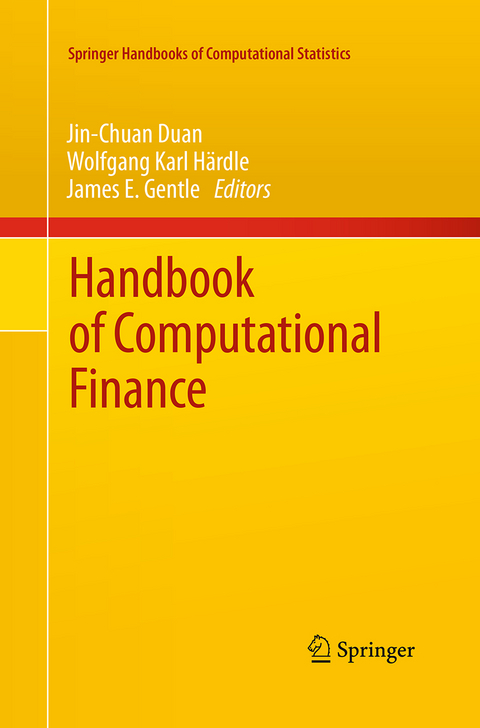
Handbook of Computational Finance
Springer Berlin (Verlag)
978-3-662-50707-0 (ISBN)
Any financial asset that is openly traded has a market price. Except for extreme market conditions, market price may be more or less than a "fair" value. Fair value is likely to be some complicated function of the current intrinsic value of tangible or intangible assets underlying the claim and our assessment of the characteristics of the underlying assets with respect to the expected rate of growth, future dividends, volatility, and other relevant market factors. Some of these factors that affect the price can be measured at the time of a transaction with reasonably high accuracy. Most factors, however, relate to expectations about the future and to subjective issues, such as current management, corporate policies and market environment, that could affect the future financial performance of the underlying assets. Models are thus needed to describe the stochastic factors and environment, and their implementations inevitably require computational finance tools.
Jin-Chuan Duan is the Director of Risk Management Institute at the National University of Singapore (NUS) and concurrently holds the Cycle & Carriage Professorship in Finance at the NUS Business School. Duan received his Ph.D. in Finance from the University of Wisconsin-Madison. He specializes in financial engineering and risk management, and is known for his work on the GARCH option pricing model. Duan is an Academician of Academia Sinica. Wolfgang Karl Härdle is professor of statistics at the Humboldt-Universität zu Berlin and director of C.A.S.E. – the Centre for Applied Statistics and Economics. He teaches quantitative finance and semiparametric statistical methods. His research focuses on dynamic factor models, multivariate statistics in finance and computational statistics. He is an elected ISI member and advisor to the Guanghua School of Management, Peking University and to National Central University, Taiwan.James E. Gentle is University Professor of Computational Statistics at George Mason University. His research interests include Monte Carlo methods and computational finance. He is an elected member of ISI and a Fellow of the American Statistical Association.
Introduction.- Pricing Models.- Statistical Inference in Financial Models.- Computational Methods.- Software Tools.- Possible further Topics: Realized Volatility/High Frequency Data.-Microstructure Empirical Analysis.- Option Pricing.- GARCH and Diffusion Jump Limits.- Interest Rate Derivatives.
From the reviews:
"This handbook provides a carefully chosen survey of the concepts and methods of computational finance, ranging from basic background material through the current frontier of research ... . This handbook is an authoritative and valuable account of an important field. I am sure that it will be an important reference source for researchers and practitioners." (Lasse Koskinen, International Statistical Review, Vol. 81 (3), 2014)| Erscheinungsdatum | 27.06.2016 |
|---|---|
| Reihe/Serie | Springer Handbooks of Computational Statistics |
| Zusatzinfo | XI, 804 p. |
| Verlagsort | Berlin |
| Sprache | englisch |
| Maße | 155 x 235 mm |
| Gewicht | 1229 g |
| Themenwelt | Mathematik / Informatik ► Mathematik ► Analysis |
| Mathematik / Informatik ► Mathematik ► Arithmetik / Zahlentheorie | |
| Mathematik / Informatik ► Mathematik ► Wahrscheinlichkeit / Kombinatorik | |
| Wirtschaft ► Allgemeines / Lexika | |
| Wirtschaft ► Betriebswirtschaft / Management ► Finanzierung | |
| Wirtschaft ► Volkswirtschaftslehre ► Ökonometrie | |
| Schlagworte | Computational Finance • Computational Statistics • Efficient Numerics • Financial Engineering • Price Calibration |
| ISBN-10 | 3-662-50707-2 / 3662507072 |
| ISBN-13 | 978-3-662-50707-0 / 9783662507070 |
| Zustand | Neuware |
| Haben Sie eine Frage zum Produkt? |
aus dem Bereich


